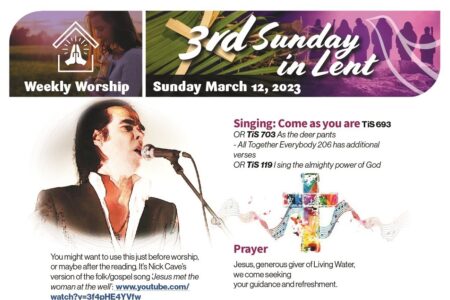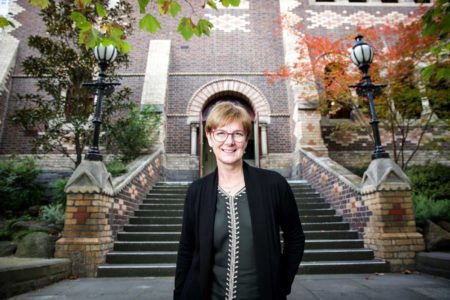By Andrew Humphries
When Rev Mat Harry was appointed to the role of New and Renewing Communities Catalyst in 2018, one of his tasks was to investigate how he could assist the Church to drive new forms of Christian community.
That task took on a greater sense of urgency in March last year when COVID-19, and subsequent lockdowns, meant a change to traditional forms of worship and a need to pivot to alternatives.
More than 12 months later, many UC communities and congregations have embraced the opportunity to adapt to the changes wrought by the pandemic.
That was made clear earlier this year when a number of Victorian and Tasmanian Presbytery Ministers met as part of a webinar to discuss what lessons had been learnt from 2020, with many reporting they had embraced the opportunity to open up new ways of faith communication.
Insights were gathered during the webinar around the use of online technologies, collaborations that occurred and the ministers’ relationship with space, in terms of buildings, homes and where worship is held.
“Presbytery Ministers drew upon their stories of how UCA communities adjusted to the restrictions and the adaptations that were incorporated into their communal life during such a disruption to life and church community,” Mat says.
“Some of these adjustments centred on creative worship, how celebrating the Eucharist and hymn singing changed, the connection with different audiences, and faith formation incorporating digital spaces as well as in-person.”
For many of the ministers, the challenges brought by COVID-19 actually accelerated a change that was long overdue if the Church was to remain connected to as many people as possible.
“In some ways the church is fairly traditional and continues to operate in ways that are based on the assumption that it is at the centre of community, (but the reality is that) it is on the periphery and no longer has a privileged position in the community,” Mat says.
“What that means is we have to rethink how we ‘do’ church: you can’t just build a building now, open the doors, put a minister in and preach a sermon on Sunday mornings and expect that people will come.
“People have shown us over the last four to five decades that no, they’re not coming and they have got better things to do.”
The task for the Uniting Church was to get members to acknowledge the shift that has happened in the broader community and adapt to ways in which they can be helped to continue to live out their Christian faith.
As COVID-19 changed the landscape, part of that greater involvement was the opening up of options as presbyteries and congregations began to address how technology could help them with alternative means of worship.
“Of course, when COVID-19 happened (having to make changes) became the priority, so part of what happened during 2020 was there was a greater reliance on these new technologies that previously people had not been forced to take up,” Mat says.
“That was a real positive and there were some real benefits that were gained from that.”

Advances in technology have allowed worship to be streamed online.
One obvious benefit was the pivot towards technology that allowed services to be streamed to homes once COVID-19 restrictions meant that traditional worship had to be put on hold.
Mat says the webinar offered many examples of how new technology had opened up many more possibilities within Victorian and Tasmanian faith communities.
“One of the reasons I wanted to put the webinar together and get the Presbytery Ministers to offer their insights was because there were some really solid and important lessons that we learnt and we didn’t want to just drop those and go back to the way things were before,” he says.
“There was real excitement among those on the Zoom conversation around what possibilities were opened up and realised because people were forced to explore different options.”
Members of the Heathcote congregation in regional Victoria offered a striking example of what could be embraced with some innovative thinking during lockdown.
“A couple of congregation members there were part of a ukulele group and once lockdown happened their teacher said ‘let’s move our sessions on to Facebook’ and they then realised how powerful the technology was and that you didn’t have to be in the same room as other people to connect,” Mat says.
“Then they thought, ‘hang on a minute, why can’t we do this with our worship service?’
“So they have since set up a YouTube daily devotional and have started a Heathcote home church Facebook group.”
Heathcote was one of many examples of how congregations were able to pivot during 2020.
“It really is the whole point, that communities which did new technology really well have connected with more people,” Mat says.
“There were many communities that embraced the opportunity for change and theirs are the stories we need to tell.”




